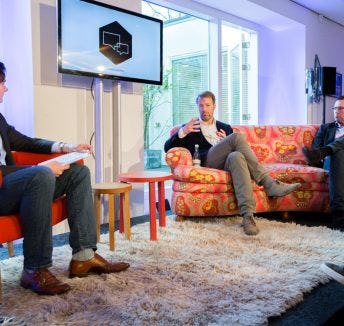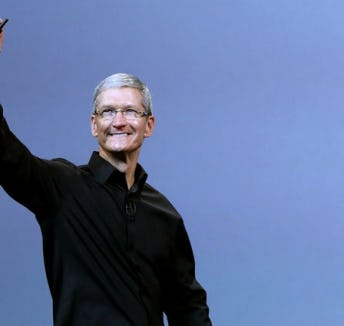
The developments in digital technology of recent years are truly dramatic and their implications far-reaching. And while no-one understands all the changes these developments will bring, most individuals, many business and governmental leaders, and society as a whole, are not really cognisant of or prepared for the shifts to come.
This was the driver behind the recent report, Deep Shift: Technology Tipping Points and Societal Impact, just released by the World Economic Forum. It is part of the work of the Forum’s Global Agenda Council on the Future of Software and Society.
The technology-enabled shifts enumerated in the report, at their core, are fundamentally providing two things: 1. digital connectivity for everyone to everything, anywhere and at anytime; and 2. the tools for analysing and using digital data in new ways. The report groups the 21 shifts discussed into six “mega-trend” categories:
People and the internet
How people connect with others, information and the world around them is being transformed through a combination of technologies. Wearable and implantable technologies will enhance people’s “digital presence”, allowing them to interact with objects and one another in new ways.
Computing, communications and storage everywhere
The continued rapid decline in the size and cost of computing and connectivity technologies is driving an exponential growth in the potential to access and leverage the internet. This will lead to ubiquitous computing power being available, where everyone has access to a supercomputer in their pocket, with nearly unlimited storage capacity.
The internet of things
Smaller, cheaper and smarter sensors are being introduced – in homes, clothes and accessories, cities, transport and energy networks, as well as manufacturing processes.
Artificial intelligence and big data
Exponential digitization creates exponentially more data – about everything and everyone. In parallel, the sophistication of the problems software can address, and the ability for software to learn and evolve itself, is advancing rapidly. This is built on the rise of big data for decision-making, and the influence that AI and robotics are starting to have on decision-making and jobs.
The sharing economy and distributed trust
The internet is driving a shift towards networks and platform-based social and economic models. Assets can be shared, creating not just new efficiencies but also whole new business models and opportunities for social self-organisation. The blockchain, an emerging technology, replaces the need for third-party institutions to provide trust for financial, contract and voting activities.
The digitization of matter
Physical objects are “printed” from raw materials via additive, or 3D, printing, a process that transforms industrial manufacturing, allows for printing products at home and creates a whole set of human health opportunities.
What does this all mean?
These trends will greatly impact how individual lives are lived, how business is conducted, how groups of people function, and how we govern ourselves. Our world is being driven and enabled more and more by software, and we are simultaneously becoming more “bite-sized” and aggregatable in what we can access and analyse. This opens up the opportunity for the offering of an innumerable number of services by and between individuals and organisations of all types from companies to non-profits and governments, but also portends large-scale change that has the potential to be difficult to absorb in both scale and speed.
The potential is huge. Imagine the positives of being able to access any service you want, or physical asset or tool you need, just when and where you need it, on whatever device; or being able to predict a serious health problem before it happens and get the needed medical attention or an organ perfectly made just for you wherever you are. These changes will not happen overnight, but are well on their way to reality and most of us don’t realise it. The potential for democratisation and transparency is great.
What are some of the challenges?
At the same time, there are real concerns. With data created on everything, will there be acceptable levels of privacy for individual lives? With accessibility greatly enhanced and a path to almost everything possible on the internet, how can we sufficiently protect intellectual property or secure financial data? As work changes, or perhaps even becomes unnecessary for many, what will happen to the sense of worth, place and contribution to society that human beings have derived from work throughout much of recorded history?
The challenges of navigating the transition are great as well. The individual, organisational, governmental and societal adjustments are non-trivial, and the impact of these adjustments will be felt by everyone. The speed of various aspects of the transition are hard to predict, but it is not difficult to see that our world will function quite differently 10-15 years from now. Being prepared to navigate the transition begins with awareness of the shifts to come and some understanding of their implications, and this report is a start at raising the awareness.
Interested in discovering more? Read the original here.
By Hans Brechbuhl.
Share this article
 Read now Talking Financial Disruption
Read now Talking Financial Disruption
 Read now The Biggest Startup Fest on the Planet
Read now The Biggest Startup Fest on the Planet